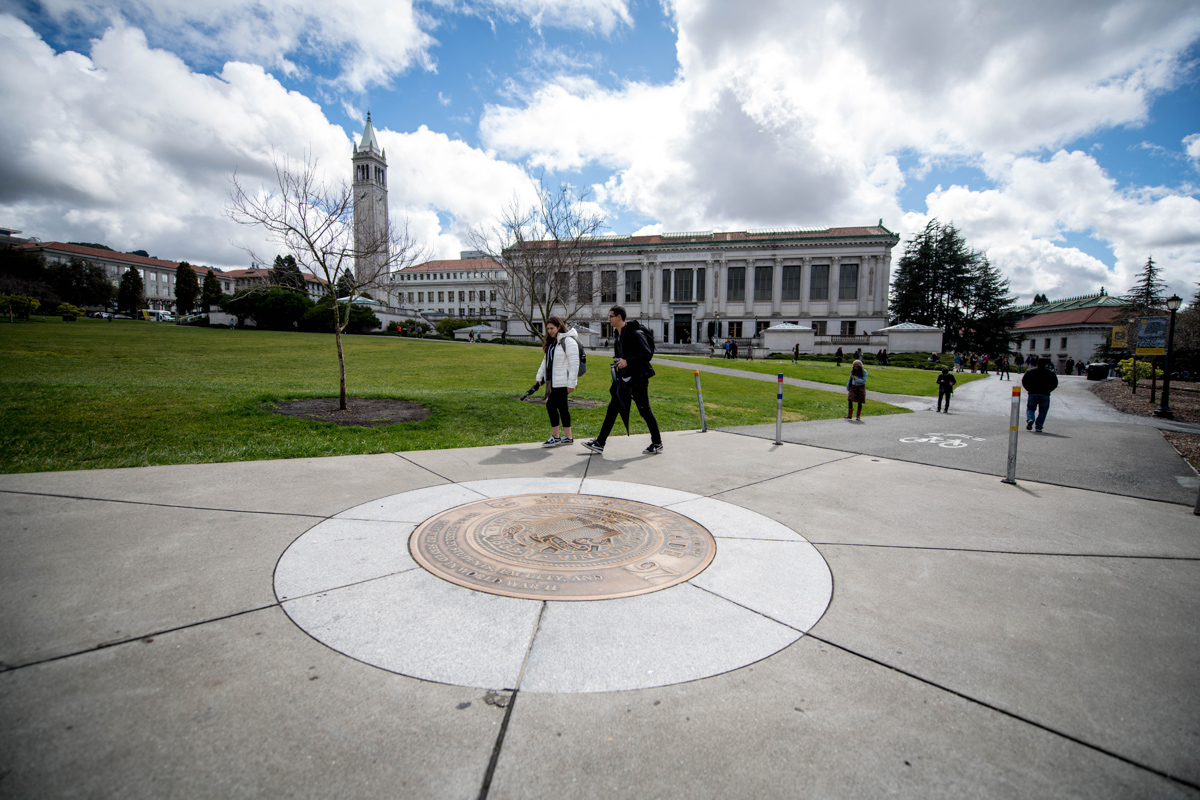
The Mellon Foundation has awarded three grants to support groundbreaking projects at the UC Berkeley Library and beyond.
The three projects connected to the Library range from amplifying the voices of women poets, to unlocking the research potential of films and TV shows, to investigating the possibilities of broadening access to digital books. Together, these efforts stand to benefit the campus community and a broader, far-flung network of researchers and scholars.
Participating in three Mellon Foundation grants represents a “big success,” said Jeffrey MacKie-Mason, UC Berkeley’s university librarian, noting that it has been rare to get more than one grant in a cycle.
“These grants support the students, faculty, and scholars who use the UC libraries to pursue their research goals,” MacKie-Mason said. “We are grateful to the Mellon Foundation for helping to provide greater access to our materials, and for bolstering research that moves society forward.”
Celebrating women poets
The Mellon Foundation awarded The Bancroft Library a $250,000 grant to celebrate and amplify the voices of women poets, opening new paths of exploration for researchers. The grant will support a two-year project that will allow Bancroft to process and provide access to about 350 linear feet of papers related to 20th-century women poets, including poets from historically underrepresented communities, and the presses that published and promoted their work.
“With this crucial support from the Mellon Foundation, The Bancroft Library will be able to provide students, scholars, and the poetry-loving public access to extraordinary collections from some of today’s most important and enduring poetic voices,” said Kate Donovan, James D. Hart director of The Bancroft Library and UC Berkeley’s associate university librarian for special collections.
Bancroft — one of the largest and most heavily used libraries of manuscripts, rare books, and unique materials in the United States — is home to a wealth of poetry collections, with exceptional strengths in modern, contemporary, Bay Area, and Beat poets. The library has long been committed to curating collections related to women writers. With the grant, Bancroft will make available papers of important literary figures such as Daisy Zamora, a contemporary Latin American poet and activist; Mary Fabilli, a key figure in the San Francisco Poetry Renaissance of the 1950s; Mary Rudge, the former poet laureate of Alameda; and ruth weiss, a “jazz poet” and member of the Beat Generation. The work will also open up the records of presses including Poetry Flash, Post Apollo Press, and City Lights Books.
The project will be led by principal investigator Mary Elings, Bancroft’s interim deputy director and head of technical services, with oversight by Theresa Salazar, curator for Western Americana, and David Faulds, curator of rare books and literary manuscripts, and support from Lara Michels, head of archival processing. The grant will fund the new two-year position of project processing archivist, responsible for arranging and describing the archives, and making the collections’ finding aids available online to audiences around the world.
The grant will also support free public events, including a research symposium and open poetry readings, to celebrate the work and lives of the poets at the heart of the project.
Mining Hollywood
In addition to supporting the effort at Bancroft, the Mellon Foundation awarded a one-year $200,000 grant for David Bamman, a professor in UC Berkeley’s School of Information, to work with the Library’s Office of Scholarly Communication Services on a text and data mining project.
“Text and data mining” is a term used to describe the technique of extracting information from across a broad set of digital content, and capturing and analyzing the trends that emerge. These methods will allow Bamman to investigate the representation of race, gender, and place in both popular and prestige films and TV shows, and answer questions such as: How are race and gender tied to the depiction of characters on screen, and how has this changed over the past 50 years? How much attention is given to cities vs. rural environments? And how might this kind of representation on screen shape the development of stereotypes in viewers?
For the project, the UC Berkeley Library’s Office of Scholarly Communication Services will analyze how Bamman’s techniques demonstrate the value and limitations of a new federal regulatory exemption that allows researchers to break the digital lock on electronically published materials, making the kind of research Bamman is undertaking possible.
The three-year exemption — which Bamman and the Office of Scholarly Communication Services were instrumental in securing — is up for review in 2024. The grant-funded project will help the Library assess the exemption’s powerful potential in enabling cutting-edge research, devise recommendations for improvement, and advocate for its renewal.
“This project allows the Library not only to advance modern research practices, but actually shape the law and policy landscape in which they operate,” said Rachael G. Samberg, the Library’s scholarly communication officer and program director. “We’re helping scholars conduct their research while also making the research possible under the law.”
Samberg, along with Stacy Reardon, literatures and digital humanities librarian, and Timothy Vollmer, scholarly communication and copyright librarian, will provide regulatory guidance and analysis for the project.
Digital books
In addition, the Mellon Foundation is providing $1.1 million to support a landmark project looking into expanding access to digitized books held by academic and research libraries.
The UC Davis Library will lead the two-year effort — dubbed Project LEND (Library Expansion of Networked Delivery) — on behalf of the 10-campus University of California system, whose libraries, taken together, form the largest university library in the world. The planning phase, which laid the foundation for the project, was also supported by the Mellon Foundation.
Established in 1969, the Mellon Foundation is the United States’ largest supporter of the arts and humanities. Learn more about the Mellon Foundation and the initiatives it supports.